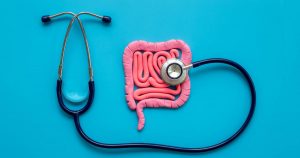June 24, 2024 from NPR

Recent research has uncovered a fascinating link between the gut microbiome—the ecosystem of microorganisms living in our digestive system—and how we respond to stress. This connection between the gut and mental health could open new doors for understanding and treating various psychological conditions.
A study published in Nature Mental Health has found distinct biological patterns in the microbiomes of individuals who are particularly resilient to stress. According to Arpana Church, a neuroscientist at UCLA’s Goodman-Luskin Microbiome Center and lead author of the study, “The accuracy with which these patterns emerged was really amazing.” This groundbreaking research analyzed data from brain imaging, stool samples, and psychological questionnaires, revealing that those with high stress resilience had a gut microbiome characterized by reduced inflammation and improved gut barrier integrity.
The gut-brain connection has long been suspected, but studies like this one provide more concrete evidence of how our gut health might influence our mental well-being. As Church explains, “The highly resilient individuals had really efficient brakes, and less of this hyper-stressed response.” This suggests that maintaining a healthy gut could be crucial for emotional regulation and cognitive function.
Further, the study supports earlier findings that a healthy gut microbiome can protect against various psychiatric conditions. For example, the presence of anti-inflammatory microbes and the maintenance of gut barrier integrity appear to be linked to reduced stress signals sent to the brain. When the gut barrier becomes more permeable, it can lead to inflammation, which acts as a stressor for the brain, indicating that all is not well in the body.
While this research is promising, it is still in its early stages. Scientists like Thomaz Bastiaanssen, a bioinformatician at Amsterdam University Medical Center, caution that the complexity of the microbiome means there is still much to learn. He points out that while there is robust evidence of a connection between the gut and the brain, the precise mechanisms remain unclear. “The next question we need to understand is, how exactly it works?” says Bastiaanssen.
Although the idea of using probiotics or specific diets to manage stress is appealing, experts like Church emphasize that more research is needed before these treatments can ben recommended. “There isn’t really one [treatment] out there that’s been really tested,” she notes, advising patients to wait until more conclusive evidence is available.
As research continues, the hope is that understanding the gut microbiome’s role in mental health will lead to new biomarkers for stress resilience and more personalized treatments for psychiatric conditions. Church envisions a future where we might even “engineer a probiotic blend that could help mitigate stress” and prevent certain diseases.
For now, maintaining a healthy gut through a balanced diet and possibly incorporating fermented foods may offer some benefits, but it’s essential to stay informed as science progresses in this exciting field. As Bastiaanssen suggests, the true power of this research lies in its potential to guide how existing treatments are used and who will benefit the most from them.
=================================================================
Considering an IME or document review to resolve an insurance claim, legal file, or workplace health and safety issue?
Our specialists provide evidence-based opinions, so get in touch with Western Medical today to learn more about our services.

